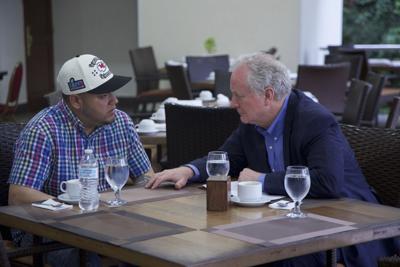For over 20 years, Canada has considered the U.S. a ŌĆ£.ŌĆØ We are overdue to change this designation. In the last 100 days, the U.S. has towards authoritarianism, exemplified by TrumpŌĆÖs for fundamental freedoms and due process, and his imperialist to CanadaŌĆÖs sovereignty.
But if the U.S. is no longer safe for Canadians, some of whom have been at the border, then it is certainly not safe for asylum seekers and refugees, who are among the worldŌĆÖs most vulnerable populations.
The (STCA) allows Canada to delegate its legal responsibility to process refugee claims to U.S. authorities by turning back genuine asylum-seekers at the Canada-U.S. border. But this agreement, which forces asylum-seekers to endure the eroding U.S. legal system, rather than our own, is to our values. It is urgent that we suspend it now, just as refugee and human rights lawyers .
The┬ĀU.S.┬Āis the only country that Canada has designated as a┬ĀŌĆ£safe third countryŌĆØ┬Āunder the┬ĀImmigration and Refugee Protection Act, based on CanadaŌĆÖs of the U.S. as ŌĆ£an open democracy with independent courts, separation of powers and constitutional guarantees of essential human rights and fundamental freedoms.ŌĆØ This is clearly no longer the case.
President Trump and his administration have triggered a ŌĆ£ŌĆØ in the U.S. Since his inauguration, Trump has ordered a staggering number of to consolidate power and to . Among them is the recent mass deportation of 300 Venezuelan and Salvadoran immigrants to a in El Salvador, against a federal judgeŌĆÖs order. Trump brazenly to comply with the order and for the impeachment of the judge who issued the ruling.
Earlier last month, the U.S. Supreme Court Trump to bring back one of those deportees, Kilmar ├übrego Garc├Ła, who was placed in custody due to an ŌĆ£,ŌĆØ without having been charged or convicted of any crime. Trump shamelessly this order. Meanwhile, his administration publicly judges, and even one, for blocking deportations.
The ŌĆ£safe third countryŌĆØ designation is not permanent. The minister of Citizenship and Immigration has a responsibility, under law, to regularly review used to make the determination. Canada must engage in this exercise now.
The first factor is whether the country is a party to the Refugee Convention and the Convention Against Torture. While the U.S. has not signed the Refugee Convention of 1951, it acceded to the Refugee Protocol of 1967 and ratified the UN Convention Against Torture.
The second factor is whether┬Āthe countryŌĆÖs policies and practices comply with these conventions. On that question, the answer is an unequivocal no. Human rights experts the the U.S. the Refugee Protocol and the Convention Against Torture. For example, in 2021, Human Rights Watch at least 160 cases of physical, sexual, and verbal abuse, alongside due process violations by U.S. border officials.
The third factor is whether the country respects human rights. In the of the Canadian government, ŌĆ£only countries that respect human rights and offer a high degree of protection to asylum seekers may be designated as safe third countries.ŌĆØ The U.S.ŌĆÖs ŌĆ£ŌĆØ offers anything but protection to asylum seekers, especially those with . But TrumpŌĆÖs war has also expanded to include , , , , , , , , , , and the , among others.
With overwhelming evidence that the U.S. does not respect human rights, and that its migration policies may amount to , continuing with business as usual makes Canada complicit in these abuses. There is no other reasonable conclusion but to withdraw from the STCA. Inaction is wilful blindness to the dangers of TrumpŌĆÖs presidency.
As an independent country, with distinctly Canadian values, why keep up this charade?


























To join the conversation set a first and last name in your user profile.
Sign in or register for free to join the Conversation